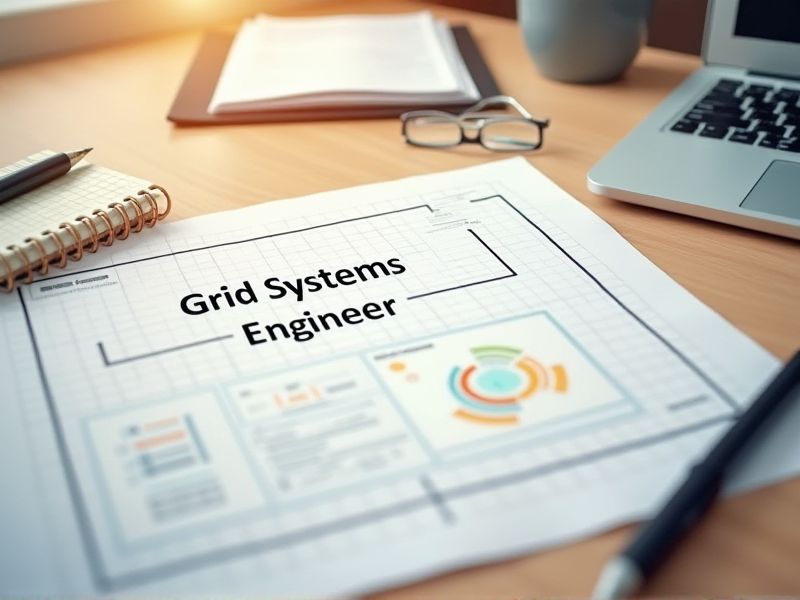
Grid Systems Engineers are responsible for designing and maintaining complex electrical grids, requiring a deep understanding of both theoretical and practical aspects of energy management. Certifications provide them with validated skills, ensuring they can address challenges like power distribution, grid stability, and integration of renewable energy sources. Holding specific certifications increases their credibility and keeps them informed about industry standards and emerging technologies. Here are key certifications that might be essential for a Grid Systems Engineer.
Red Hat Certified Engineer (RHCE)
A Grid Systems Engineer often relies on Linux-based environments, and the Red Hat Certified Engineer (RHCE) certification provides a deep understanding of Red Hat Linux systems. Certification demonstrates the ability to handle complex tasks such as system security, optimization, and troubleshooting, which are essential for efficient grid operations. Employers recognize RHCE as proof of expertise in managing and monitoring enterprise environments, a critical component in grid computing. RHCE-certified professionals are equipped to implement automation and streamline processes, enhancing the reliability and performance of grid systems.
Certified Kubernetes Administrator (CKA)
Certified Kubernetes Administrator (CKA) certification ensures that a Grid Systems Engineer possesses comprehensive knowledge of Kubernetes, critical for managing containerized applications. As organizations increasingly adopt Kubernetes for scalability, a CKA-certified engineer can efficiently deploy, manage, and troubleshoot these systems. This expertise directly impacts an organization's ability to maintain high availability and optimize resources in grid environments. Certification validates the engineer's skills, reducing the risk of operational failures and improving system reliability.
AWS Certified Solutions Architect - Associate
A Grid Systems Engineer often deals with scalable infrastructure, and the AWS Certified Solutions Architect - Associate certification provides expertise in designing scalable cloud architectures. The certification ensures engineers understand AWS services, which is crucial for integrating and optimizing cloud-based grid systems. Security is a core component of AWS solutions, and the certification covers best practices, aiding engineers in securing grid networks. Cloud service cost management is essential; this certification equips engineers with skills to optimize costs, directly impacting an organization's budget efficiency.
Microsoft Certified: Azure Administrator Associate
Grid Systems Engineers often work with complex infrastructure that requires reliable cloud integration. Microsoft Certified: Azure Administrator Associate equips engineers with the skills needed to manage and optimize Azure-based environments. This certification ensures they can effectively monitor performance, configure networks, and manage resources. A deeper understanding of Azure enhances system efficiency and scalability, crucial for grid operations.
Google Professional Cloud Architect
A Google Professional Cloud Architect possesses the ability to design, develop, and manage robust cloud solutions, which are essential for optimizing grid systems infrastructure. The expertise in cloud services helps in ensuring scalability and flexibility, crucial for managing the variable workloads common in grid systems. Such architects have the skills to implement security measures and ensure compliance, which is vital for protecting the sensitive data often handled in grid systems. Their capability to integrate diverse technologies facilitates better resource management, enhancing the overall performance of grid systems.
CompTIA Linux+
The CompTIA Linux+ certification equips Grid Systems Engineers with essential Linux system management skills, which are crucial since Linux is widely used in grid computing environments. Mastery of Linux operating systems enhances an engineer's ability to manage and optimize computational grids, leading to improved performance and efficiency. Grid systems often rely on open-source technologies, and Linux+ provides foundational knowledge that supports integration and troubleshooting. As grid infrastructure complexity increases, having a solid understanding of Linux systems allows engineers to maintain robust and secure environments, aligning with organizational goals for scalability and reliability.
VMware Certified Professional (VCP)
A VMware Certified Professional (VCP) credential demonstrates comprehensive knowledge in virtualization, which is a critical component for Grid Systems Engineers dealing with complex infrastructure. Achieving VCP validates the ability to efficiently manage and optimize virtual environments, enhancing the performance and reliability of grid systems. The certification enables grid engineers to streamline resource allocation, bolstering system scalability and operational efficiency. Enterprises often prefer VCP-certified professionals for grid systems roles due to their proven expertise in maintaining high-performance virtualized environments.
Certified Information Systems Security Professional (CISSP)
CISSP certification equips a Grid Systems Engineer with the knowledge to protect complex infrastructures against cyber threats, enhancing grid reliability. Having a certified engineer ensures adherence to industry security standards, thereby reducing vulnerabilities. This certification demonstrates a comprehensive understanding of risk management, crucial for preventing outages and cyber intrusions. As grid systems become increasingly digitalized, cybersecurity expertise becomes essential, making CISSP an important credential.
Oracle Cloud Infrastructure Architect Associate
Grid Systems Engineers often manage distributed computing resources, and Oracle Cloud Infrastructure (OCI) provides scalable cloud solutions for such environments. OCI Architect Associate certification equips engineers with knowledge to design, configure, and manage these cloud infrastructures effectively. Understanding OCI ensures robust and optimized resource allocation, crucial for grid system efficiency. This certification also demonstrates proficiency in integrating cloud solutions with existing systems, enhancing overall system performance.
Certified OpenStack Administrator (COA)
The Certified OpenStack Administrator (COA) certification signifies proficiency in managing and operating cloud environments, which is crucial for Grid Systems Engineers as they often work with complex, distributed computing systems. Being proficient in OpenStack allows these engineers to efficiently deploy and manage grid computing resources, enhancing the scalability and reliability of infrastructure. Knowledge of OpenStack can optimize resource utilization and improve workload balancing, which directly impacts system performance. Employers often seek COA-certified professionals to ensure that their grid systems are aligned with industry standards, reducing downtime and operational costs.
Summary
When you obtain certifications as a Grid Systems Engineer, your professional credibility and technical expertise often increase. Certifications typically lead to enhanced job prospects and potential salary growth, as employers value verified skills. You'll likely notice improved problem-solving abilities due to structured learning and industry-standard practices. Consequently, this can result in a more robust and reliable grid infrastructure you manage.
